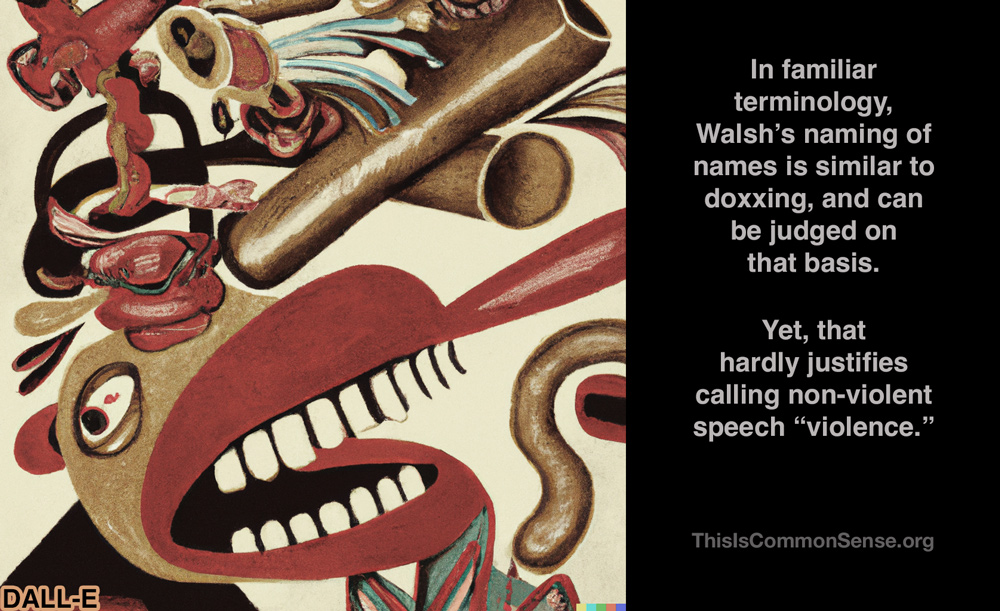I’m pretty sure I’d never heard the term “stochastic terrorism” until last week; now it’s everywhere.
What does it mean?
It sounds redundant, as if the first word didn’t modify the second so much as define it, but I could be wrong,
Freespoke is the new search engine I’m trying out, now that all the old ones seem compromised in weird ways.
Matt Walsh, of his Daily Wire podcast and his documentary film What Is a Woman?, appears to be one of the term’s current honorees. He is said to commit “stochastic terrorism” by calling attention (in one case) to the child abuse going on in hospitals in the form of “gender affirmation” treatments and surgeries. Merely by identifying something that is actually happening and judging it as bad qualifies because it has some unmeasurable likelihood of eliciting violence against those who are thus fingered — not ineluctably or directly or certainly or anything like that.
Just randomly.
Stochastic means random.
Of course, the charge against Walsh (or say, Trump, or anyone else) is that by identifying specific people in specific institutions he’s inviting random followers to engage in violence. But what Walsh is doing specifically is inviting his followers to protest and take political action against the malefactors he identifies.
In familiar terminology, Walsh’s naming of names is similar to doxxing, and can be judged on that basis.
Yet, that hardly justifies calling non-violent speech “violence.”
Furthermore, back to my opening concern, isn’t all terrorism random? Terroristic acts differ from insurrection and assassination in their randomness, the better to elicit a culture of fear in the populace. The randomness in “stochastic terrorism” is not in the targets but the terrorists.
In a heavily polarized political climate, all specific charges by one side against specific people on the other side could be seen as “stochastic terrorism.”
Better to tread carefully. And drop the term.
This is Common Sense. I’m Paul Jacob.
—
See all recent commentary
(simplified and organized)

4 replies on “The Random Malefactor”
To the extent that the concept of stochastic terrorism has merit, accusing some identified party of stochastic terrorism would itself be an act of stochastic terrorism, in-so-far as some third party might respond violently to what he or she regarded as stochastic terrorism.
Being publicly identified is the same as violence for libprogs because it makes them stop what they are doing.
Paradigms unrealized are what they fear.
Nihilism must recruit or end.
If it ends, their life choice is branded meaningless.
Some acts of terrorism aren’t necessarily ‘random’. The individual victims might be random, but the location and means of attack often have a specific group in mind. 9/11 was not random. The terrorists chose their locations with care and with a specific goal in mind. Charlie Hebdo wasn’t random. When people attack mosques or synagogues or churches, it is usually for a specific purpose. The people who are hurt may be random, but the act is not necessarily a random attack.
Very true. The distinctive feature of actual terrorism is attacking people who are well outside the state (for purposes of demoralization). That said, terrorism tends to involve a deliberate element of apparent randomness, because it makes a wider range of people feel under threat.
(I am reminded of a proposition, advanced many years ago by Charles Wieder, that the criminal who waylays a random passer-by is a greater criminal than one who targets a specific victim, because anyone who might have been in the same place at the same time has been victimized.)